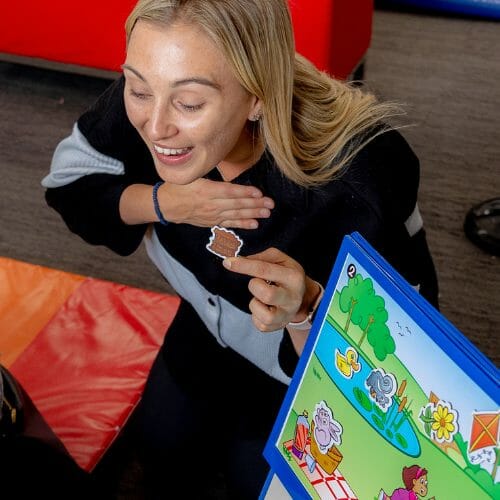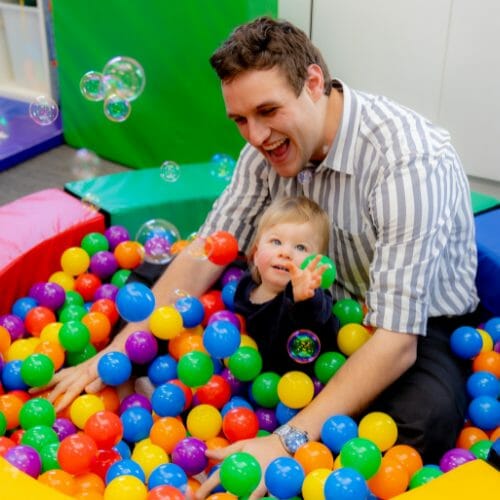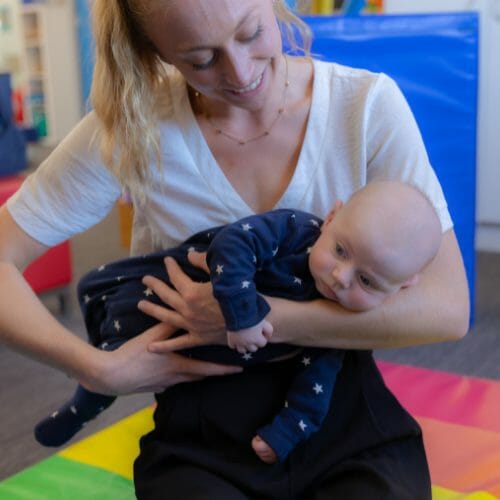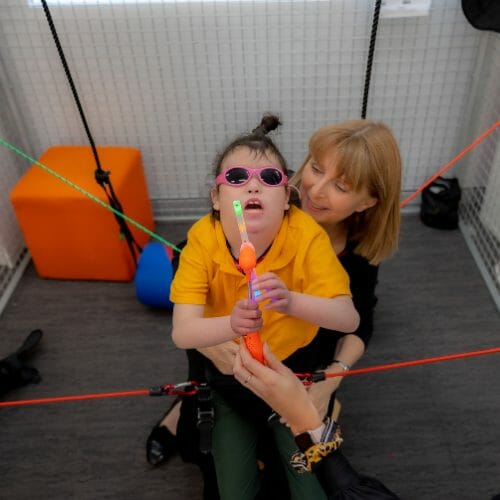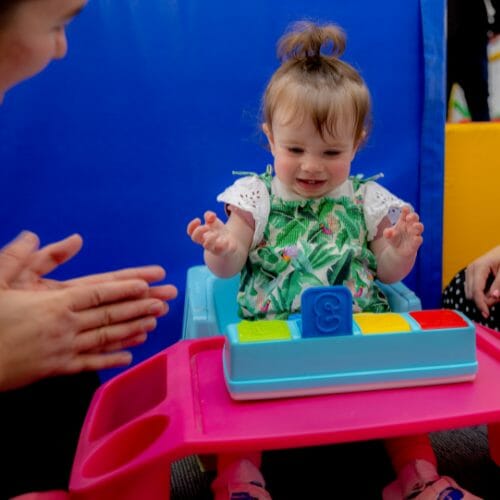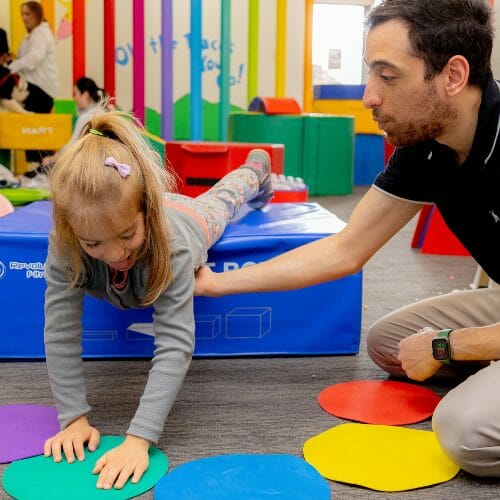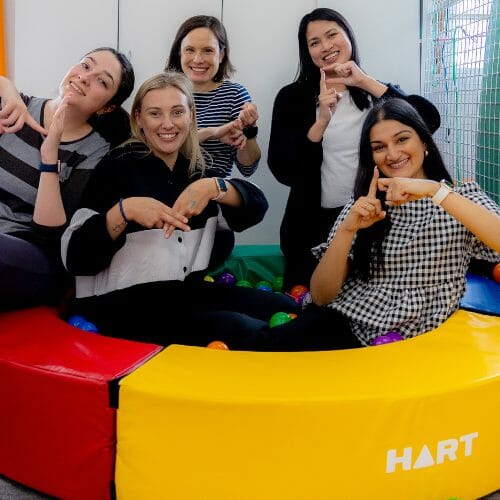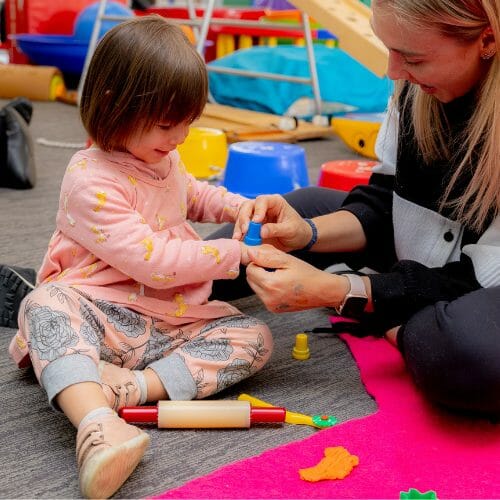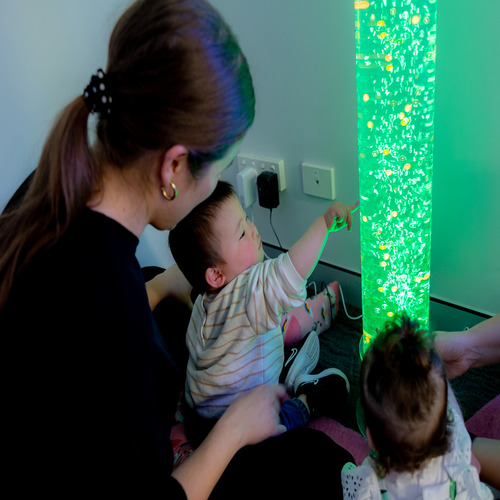What is Developmental Delay?
Developmental delay (DD) is a term used when a child is developing skills more slowly than other children in the same age group in the areas of speech and language, motor skills, self help, play and problem solving. When more than one area of development is affected, the term Global Development Delay (GDD) may be used.
Children with developmental delay may have associated diagnoses or conditions such as prematurity (born too early), inherited disorders, chronic illness (including epilepsy), infections, problems with hearing and vision. Environmental, dietary and social factors may also contribute.
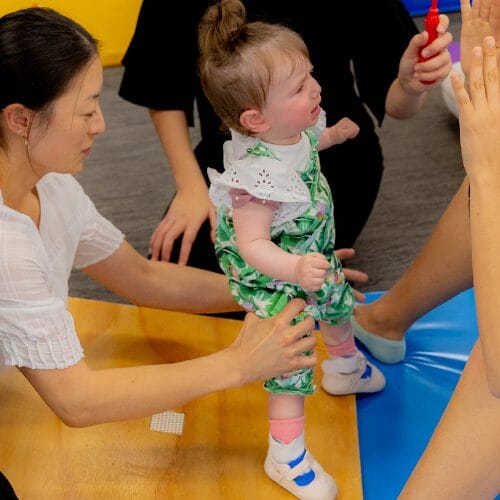
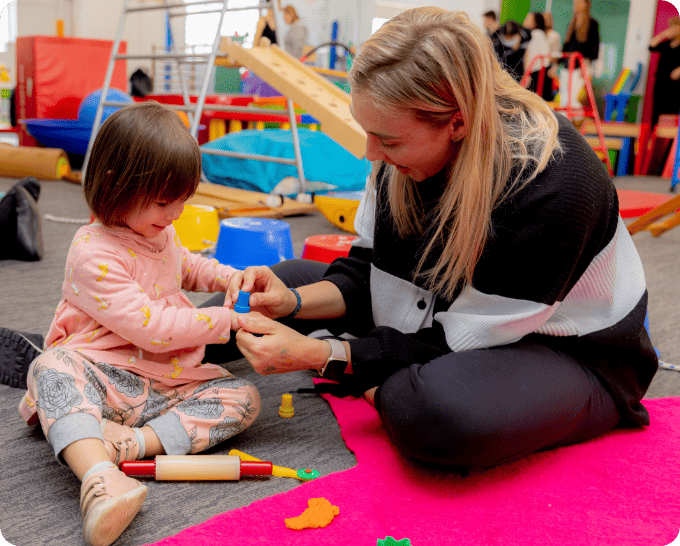
What Therapies For Kids can do
All children with developmental delay still have the potential to learn and develop but they may need additional support to achieve your goals and their potential.
Occupational Therapy can assist your child to develop the skills required for play, fine motor, self help, and problem solving/cognition. Our therapists are skilled in providing directive and fun therapy intervention in order to work towards success in your identified goal areas.
Our occupational therapists will provide engaging activities that may promote basic play skills such as “take out” and “put in” or more complex fine motor skills such as pincer grasp that allow your child to participate in preschool table top activities such as puzzles, threading and drawing. We also assist with transition to school and fine motor and cognitive skills required during the school years. Equipment prescription or environmental solutions may be required for home or school. Consultation regarding toileting can also be given.
What you can do
The earlier a child’s developmental delay is identified and supports are put in place, the better the outcome for the child and family. If you are concerned about your child’s development please speak with your community health service or General Practitioner.
Whilst all children develop skills at a different rate you can assist your child’s development by talking and reading to them, providing opportunity for suitable and sufficient gross motor and fine motor activity, and by playing with them and showing them how to play with certain toys/objects. Dependent on your child’s age you can encourage your child to participate in all activities of daily living such as dressing, bathing and toileting to the best of their abilities and then encourage them to attempt the next or more complex part of the activity.
If your child is attending preschool it is a good idea to talk with staff and select some specific toys/skills that can be practised at home. Your child will gain confidence and improved self-esteem with their achievements, may have improved relation with their peers as well as the enthusiasm to learn another skill.
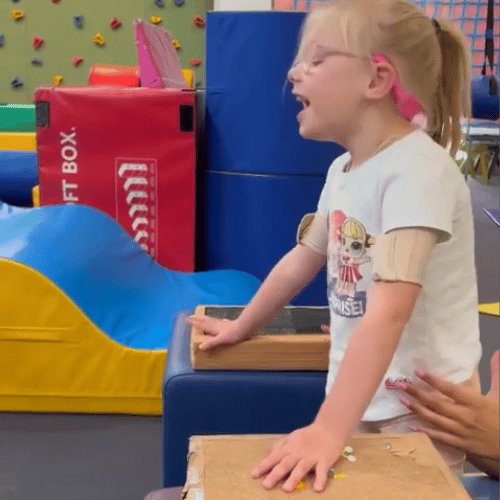
Our Services
Intensive Therapy Programs
Intensive Therapy Programs
Physiotherapy
Physiotherapy
Occupational Therapy
Occupational Therapy
Speech Language Pathology
Speech Language Pathology
Exercise Physiology
Exercise Physiology
DMI Therapy
DMI Therapy
Suiting
Suiting
Telehealth
Telehealth
New to Therapies For Kids? Start your journey
Talk to our team now
Request a call back
We are here to help
